(Retard pris dans ls semences aux USA. On dira que cela ne s'améliore pas pour 2023. Là, je parle de la spéculation des bourses des échanges des matières agricoles, bref, en un mot de la spéculation sur les denrées agricoles. note de rené)
Farm Crisis Hits Dakotas As Floods Delay Plantings, May Trigger US Food Shortage
In the last several weeks, farmers in the Northern Plains have been battered by blizzards, winter storms, high winds, and extreme flooding. These weather phenomena have delayed farmers from plantings in high-producing crop regions. Every week plantings are delayed, the harvest yield shrinks, and this comes at a precarious time as the global food supply chain is fracturing.
Private weather forecasters and ag specialist BAMWX warned about delayed plantings across the Northern Plains to Midwest to the Ohio Valley. Some farmers might not be able to plant until at least May as widespread above-average moisture, and widespread well below average temperatures inhibit farmers from working their fields.
BAMWX shows the most above-average precipitation occurred in The Dakotas.
Much of the Northern Plains to Midwest to the Ohio Valley experienced below-average temperatures.
BAMWX's chief meteorologist Kirk Hinz provides a weather model looking out two weeks and shows more of the same: below-average temperatures and higher precipitation. The risk is that delayed plantings could extend well into the first half of May.
Spring has so far been filled with chaos and uncertainties for American farmers. Many cannot work in their fields because tractors would get stuck, fields are underwater, and saturated soils make for a bad growing environment. Also, cold weather disrupts plant nutrient intake and can damage seedlings very early in the growing cycle, which may cause premature death.
Given this uncertainty from the weather and how America's food supply chain could be at risk. CBoT trader Tommy Grisafi(also risk advisor at commodity trading firm Advance Trading Inc), with ag clients throughout The Dakotas, provided this warning of what's happening on the ground:
"As I sit in my office in Mayville, North Dakota, I'm starting to wonder how the Upper Midwest farmer will get all the crops planted in a timely fashion. Below average temps are forecasted for the next ten days; combine that with above-average snow and rainfall, which only means more delayed plantings.
"Upper Midwest farmers are running out of time as prevent plant dates could soon be triggered. North Dakota's first prevent plant date is May 25th for certain parts of the state -- this will mean farmers will file a prevented planting claim on their crop insurance and not plant."
One significant reason plantings are delayed in North Dakota is flooding.
Grisafi said, "North Dakota, Montana, and Canada are famous for growing specialty crops."
"We often forget how these products are in everyday foods we consume. The Ukraine war was like throwing gas on an already hot fire. The Great drought of 2021 depleted supplies. The world is now dependent on the Northern hemisphere for major food needs. The US must grow record crops just to meet average demand. If not, this could add to the biblical food shortage coming down the pipe," he said.
Grisafi has spent three decades on the CBoT and said fertilizer shortages plus delayed plantings suggest harvests could be severely impacted. "If only our government had a strategic fertilizer reserve," he said.
He is in contact with hundreds of North Dakota farmers and various end-users, indicating many of these folks "will have trouble sleeping at night" because of the agricultural crisis emerging.
Here's an aerial shot of one of Grisafi's clients. The fields are completely flooded.
Grisafi's Ag Bull podcast has recently stated, "planting delays and production problems in the US are moving markets." Last month, we cautioned that the mainstream media fails to address how the US is careening towards a food crisis.
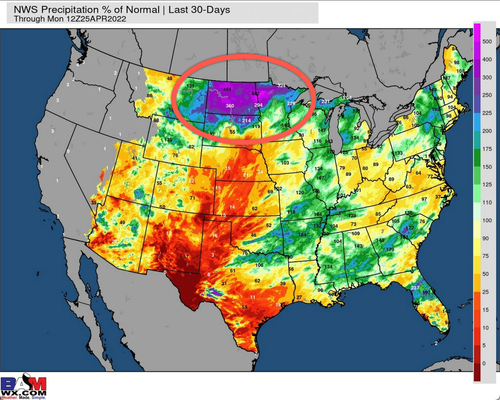
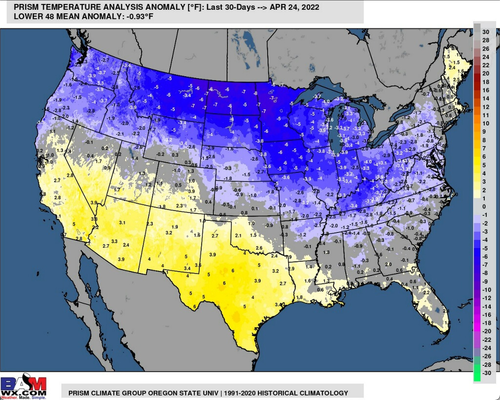
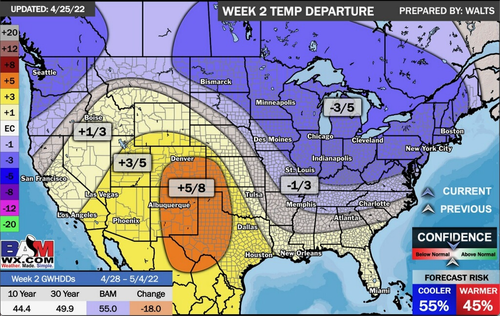
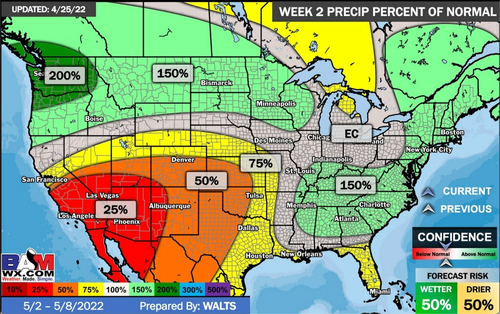
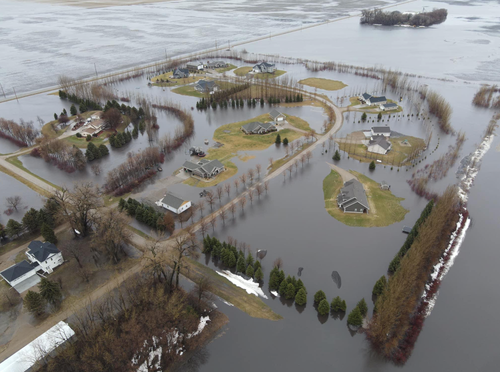
Aucun commentaire:
Enregistrer un commentaire